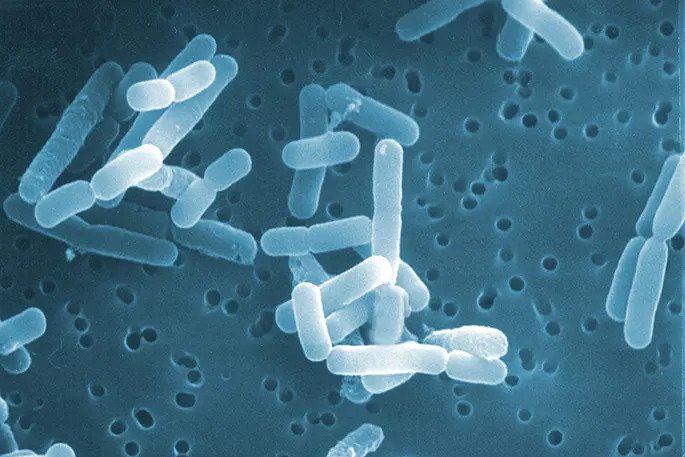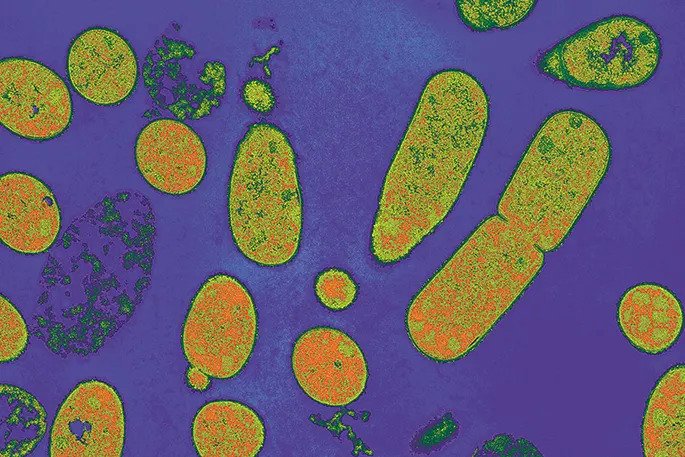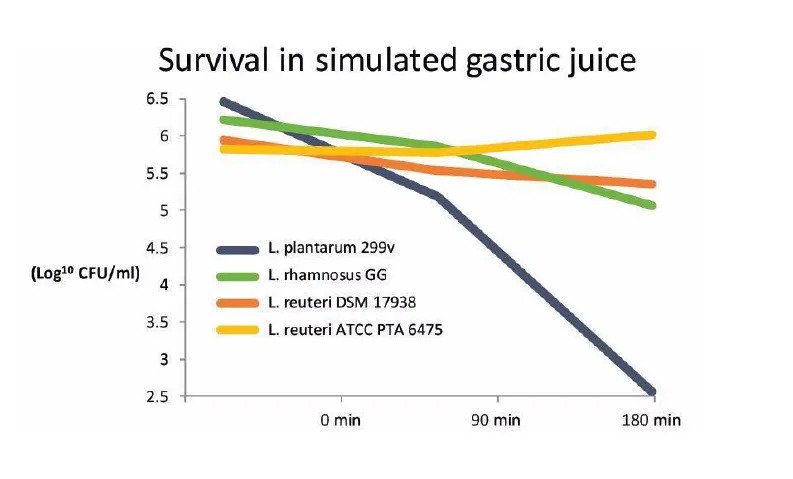About Probiotics

Infantile Colic
Up to 26 percent of all infants in the West suffer from infant colic, which is defined as recurrent crying, mainly in the evening, for at least three hours per day, at least three days per week and for at least three weeks in an otherwise healthy infant.
Limosilactobacillus reuteri DSM 17938 in Infantile Colic: A Randomized, Double-Blind, Placebo-Controlled Trial
Francesco Savino
Results: There was a significant reduction in crying time for the patients taking L. reuteri vs placebo. Daily crying time reduced from 370 to 35 minutes. For infants taking placebo, crying time went from 300 to 90. Infants whose crying time reduced significantly was doubled 24 out of 25 vs 15 out of 21 for the infants taking L. reuteri, compared to the infants taking placebo.
50%
of babies cried less after taking BioGaia.
Constipation
The incidence of constipation among children varies between 7 and 30 percent depending on the country. A full 40 percent develop symptoms already during the first year of life and these often persist for a long time.
Many children with constipation have continued problems as teens and adults.
Papagaroufalis K, 2014
Compared to control formula:
- Regurgitation episodes were significantly fewer in the L. reuteri group
- The probiotic group had significantly lower frequency of hard stools and higher percentage of soft stools at day 28
40%
of children developing symptoms of constipation during first year of life.


Regurgitation
Regurgitation is defined as the passage of refluxed gastric content into the throat whilst vomiting is defined as expulsion of refluxed gastric content from the mouth. More than half of all infants age 0-6 months have at least one functional gastrointestinal disorder, the most common one is regurgitation.
The frequency of regurgitation varies with age, with infants up to the first month being more frequently affected (up to 80% of children during the first month of life). Most infants are happy and healthy even if they frequently spit up or vomit. Regurgitation represents 25% of paediatric consultations
Clinical Trial:
Prophylactic Use of a Probiotic in the Prevention of Colic, Regurgitation, and Functional Constipation. A Randomized Clinical Trial
Flavia Indrio
Results: At 3 months of age, the mean number of regurgitations per day was 2.9 for babies taking BioGaia and 4.6 times per day for babies taking placebo.
<40%
babies regurgitated by taking BioGaia.
Diarrhea
Rotavirus is one of the most prevalent causes of acute diarrhea in small children worldwide. By the age of five it is estimated that all children, regardless of their homeland, have had one rotavirus infection. In the USA rotavirus is behind 45 percent of all cases of acute diarrhea in children.
Antibiotic-associated diarrhea (AAD), i.e. diarrhea as a side effect of antibiotic therapy, affects up to 25 percent of all patients treated with antibiotics.
The risk of AAD is increased by factors such as the intake of several different types of antibiotics over a long period of time, gastrointestinal surgery and long-term hospital stays.
Study By: Francavilla R, 2012
Compared to placebo L. reuteri significantly:
- reduced the duration of diarrhea by 1.2 days
- the frequency of watery diarrhea was significantly reduced on treatment days 2 and 3
- the number of children with normal stool consistency was significantly higher on days 2 and 3
1-2
days, babies recovered from Diarrhea instead of 3-5 days


Functional Abdominal Pain (FAP)
At least half of the earth’s population is infected, but its incidence varies from over 80 percent of all adults in developing regions such as Asia and Latin America to between 20 percent and 50 percent in the industrialised world. However, the majority of infected individuals are unaware of this fact and only around 20 percent have symptoms.
Weizman 2016: Compared to placebo:
- Frequency of pain was significantly reduced at 4 weeks with 1.9 vs. 3.6 episodes/week in the L. reuteri and placebo group respectively.
20%
of children affected by functional abdominal pain.

Infection Protection
There is evidence that L. reuteri DSM 17938 increases the immune systems ability to fight off super respiratory tract infections.
Gutierrez-Castrellon P, 2014
Compare to placebo:
- L. reuteri significantly reduced the frequency and duration of episodes of diarrhea and respiratory tract infection at both 3 and 6 months
- The number of doctor visits, antibiotic use, absenteeism from day school and parental absenteeism from work were significantly reduced
55%
93 out of 168 children experienced less respiratory tract infection after taking BioGaia, compared to (204 out of 168 children) for placebo

What Are
Probiotics?
Probiotics are dietary supplements, like vitamins and minerals. The word probiotic means “for life” as opposed to antibiotic which means ‘against life’. WHO defines probiotics as live microorganisms which, when administered in adequate amounts, confer a health benefit on the host.

Bacteria Controls Our Lives – Microflora
The body contains huge numbers of bacteria naturally. While that sounds scary, it’s really not. These bacteria are part of a complex ecosystem in the digestive system called the microflora.
The microflora is important for good health and performs a number of useful functions in the body.
• Helps with digestion and absorption of nutrients
• Provides a natural defence against
bad bacteria, toxins and pathogens
• Influences the development and function
of the immune systems

Modern
Lifestyle
Modern Lifestyle Negatively Affects Our Microflora. The gut flora can be disrupted by external factors such as:
• High intake of antibiotics and other drugs
• Low nutritional food
• Environmental toxins
• Sleep deficiency
• Stress
• Travelling

Good Bacteria
vs Bad Bacteria
There’s a universal theme that runs through almost all stories, myths and legends of mankind. It occurs in books, movies and TV series – fight between good and evil.
The same thing goes in the digestive tract. There is a constant battle going on between good and bad bacteria. The bad bacteria harm us while good bacteria protect us and help us achieve better health.

Probiotics: The Good Bacteria and Your Immune System
Probiotics are good bacteria. Probiotics provide a health benefit by favourably contributing healthy bacteria to your microflora.
80% of the immune system can be directly linked to the gastrointestinal wall which makes a healthy intestinal mucosa and a balanced microbiota essential for a well functioning immune system.

NOT All Probiotics
Are The Same
The use of probiotic is a science. It is important to understand that there are many different probiotic strains, and experts believe that these different strains have different health benefits. All probiotics are not the same and cannot be substituted for one another.
BioGaia consists of L. reuteri (DSM 17938 strain) which is special and derived from human mother’s milk. It produces Reuterin, which has antimicrobial, antiviral and antifungal properties.
L. reuteri is one of the first probiotic strain patented and commercialised. Because L. reuteri naturally occurs in the human body, it is effective and suitable for human and children’s health, as it is adapted to reside in humans. Subsequent strains commercialised are less symbiotic with the human body in various ways.

BioGaia
Is Special
Only BioGaia contains the natural probiotic strain Limosilactobacillus reuteri. This special probiotic naturally colonizes the digestive tract.
It is even found in the milk of breastfeeding mothers.
In fact, it if among the first bacterial species to become naturally established in the normal microflora of the newborn.
Most other probiotic strains are only temporary inhabitants, derived from the intake of food.

L. reuteri Survive
In Stomach
How do we keep the bacteria from dying in the acidic environment in the stomach before it reaches the gut? GI tract has pH <3, where most of the bacteria does not survive including probiotics. The quantities decrease more than 90% during gastric transit.
L. reuteri is one of the very few probiotic species that have co-evolved with human since the beginning of the time and whose natural habitat is the digestive tract. It is therefore well adapted to this kind of environment.
We have biopsies and stool to show that it successfully colonized in the stomach and intestine.
In other words, we do not need to use any specialized coating or acid coated technology to make sure that L. reuteri services in the acidic environment of the stomach and GI tract.
While probiotic can be beneficial, it is uncertain whether other strain can withstand the acidic environment in the stomach.
GI tract pH < 3. Most bacteria, including most probiotics, decrease > 90% in numbers during gastric transit:
• L. reuteri DSM17938 and L. reuteri ATCC PTA 6475 survive well without significant loss of CFU
• L. plantarum 299V, and L. rhamnosus GG in particular, decrease drastically under acidic environment
Ref: Hanne Jensen et al. 2011. Int J Food Microbiology

